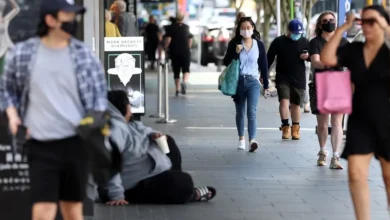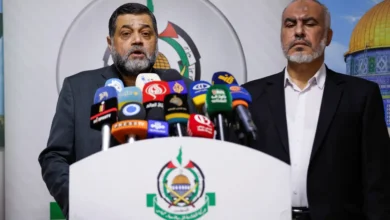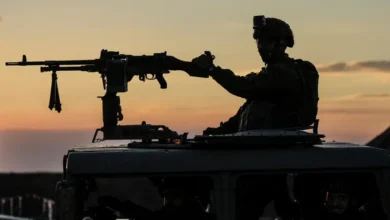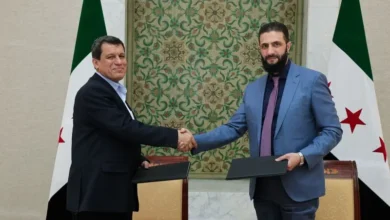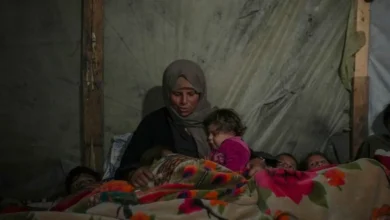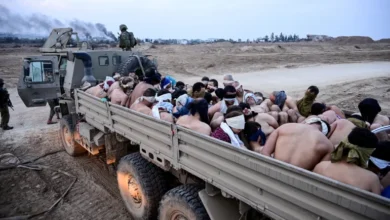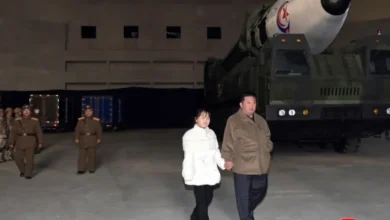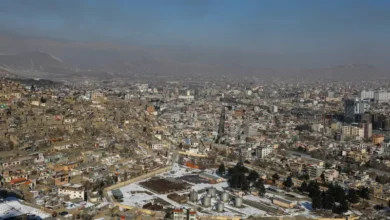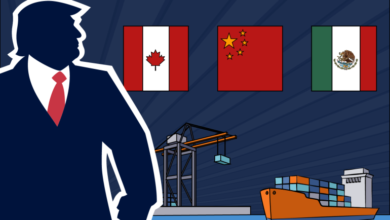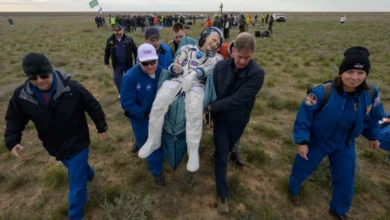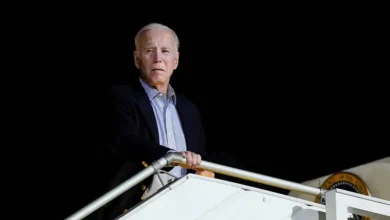Ukraine children returned from Russia after alleged deportation
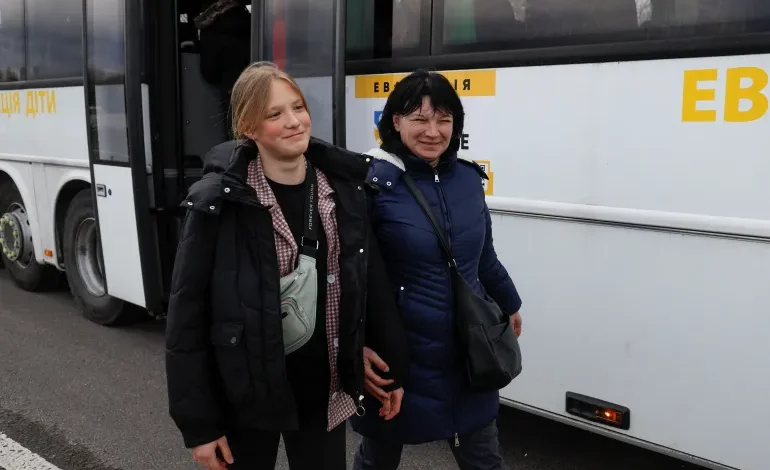
More than 30 children have been reunited with their families in Ukraine this week after a long operation to bring them back from Russia, where they had been taken from occupied areas during the war, a humanitarian group has said.
Kyiv has estimated nearly 19,500 children have been taken to Russia since Moscow invaded in February last year, in what it condemns as illegal deportations.Moscow, which controls parts of Ukraine’s east and south, has denied abducting children and said they have been transported away for their own safety.
On Friday, the Save Ukraine charity said the children and their relatives had crossed the border into Kyiv-controlled territory.
According to released footage, the children, who carried suitcases and bags, crossed the border on foot and later boarded a bus to continue their journey.
“Now, the fifth rescue mission is nearing its completion. It was special regarding the number of children we managed to return and also because of its complexity,” said Mykola Kuleba, the founder of Save Ukraine.
Kuleba praised the “heroic mothers” who had travelled to retrieve their children in what he called the “most difficult” of the charity’s rescue missions to date.
The group helped the Ukrainian relatives of children who had been taken to Russia with the logistics, transport and planning needed to embark on the long journey to fetch their children and bring them back.
A grandmother who had been due to reunite with two of her grandchildren died suddenly on the trip from “stress” and the children had to remain in Russia, Kuleba, Ukraine’s former commissioner for children’s rights, told a media briefing in Kyiv.
Writing on Facebook, he said the Ukrainian relatives had been subjected to a “13-hour interrogation” by Russia’s FSB security service.Kuleba said that all the children who have been brought back to Ukraine by Save Ukraine had said that no one in Russia was trying to find their parents in Ukraine.“There were kids who changed their locations five times in five months, some children say that they were living with rats and cockroaches,” he said. The children were taken to what Russians called summer camps from occupied parts of Ukraine’s Kharkiv and Kherson regions, Kuleba said.
There was no immediate comment from Moscow.
Three children – two boys and a girl – were present at the media briefing in Kyiv. Save Ukraine said they were returned to Ukraine on a previous rescue mission last month that returned 18 children in total.
The three children said they had been separated from their parents who were pressured by Russian authorities to send their children to Russian summer camps for what was billed as two weeks, from occupied parts of Kherson and Kharkiv regions.
The children at the briefing said they were forced to remain at the summer camps for four to six months and were moved from one place to another during their stay.“We were treated like animals. We were closed in a separate building,” said Vitaly, a child from Kherson region whose age was not clear. He added that they were told their parents no longer wanted them.
Al Jazeera’s Jonah Hull, reporting from Kyiv, said it is believed many thousands of Ukrainian children remain in Russia.
“Some of them, accompanied by their parents, have made active decisions to stay in Russia. But it is alleged a lot morewere illegally deported. According to the evidence of some of those who have returned, sometimes they were held against their will and subjected to demeaning treatment, propaganda and indoctrination”.
The International Criminal Court last month issued an arrest warrant for Russian President Vladimir Putin and Russia’s children’s rights commissioner, Maria Lvova-Belova, accusing them of abducting children from Ukraine.
Moscow has not concealed a programme under which it has brought thousands of Ukrainian children to Russia from occupied areas, but presented relocations as a humanitarian campaign to protect orphans and children abandoned in the conflict zone.Russia has rejected the allegations of the ICC, saying it does not recognise the jurisdiction of the court and calling the warrant against Putin and Lvova-Belova null and void.
Lvova-Belova told a news conference earlier this week that her commission acted on humanitarian grounds to protect the interests of children in an area where military action was taking place and had not moved anyone against their will or that of their parents or legal guardians, whose consent was always sought unless they were missing.
Kateryna Rashevska, a lawyer from the Ukrainian NGO Regional Centre for Human Rights, told the briefing they were collecting evidence to build a case that Russian officials deliberately prevented the return of the Ukrainian children back to their country.
“In every story, there is a whole range of international violations and it cannot go unpunished,” she said.
